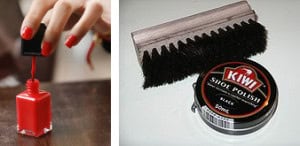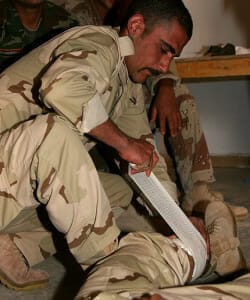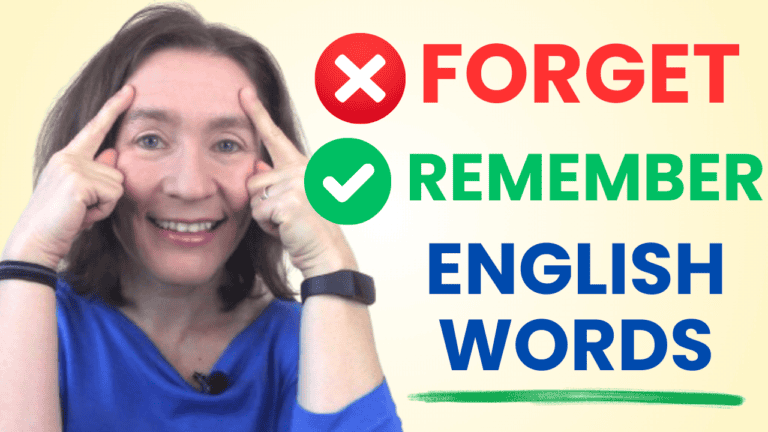
Heteronyms in English are two words with the same spelling, but different pronunciations and different meanings.
Two common examples are the words close and live:
- close (adj.) with an “s” sound = near, not far
My house is close to the bus station. - close (v.) with a “z” sound = shut, opposite of open
Please close the door when you leave. - live (v.) with the same “i” as in “sit” = reside
I live in an apartment in the city center. - live (adj.) with the same “i” as in “I” (me) = happening at that moment, in that place
I was interviewed on live TV.
There’s live music at the restaurant
Here are 15 interesting heteronyms in English:
alternate
- AL – ter – net (n.) – an alternative, the next option
We have an alternate plan if this one doesn’t work. - AL – ter – nate (v.) – switch back and forth between two things
I alternated between hope and despair.
attribute
- AT – tri – bute (n.) – a characteristic of something
His intelligence is one of his best attributes. - at – TRI – bute (v.) – give credit for something
This famous saying is attributed to Benjamin Franklin.
content
- CON – tent (n.) – information or objects that are contained in something else
The security officer inspected the contents of my suitcase. - con – TENT (adj.) – satisfied, happy
I was content with the grade I got on the test.
deliberate
- de – LIB – rit (adj.) – done with intention and awareness, on purpose (opposite of accidentally)
His comment wasn’t a mistake; it was a deliberate insult. - de – LIB – er – ate (v.) – discuss, debate
The managers deliberated for an hour about how to solve the problem.
desert
- DE – sert (n.) – a very dry area of land
It’s hard to find water in the desert. - de – SERT (v.) – abandon, leave without coming back
My father deserted our family when I was only 6.

dove
- duv (n.) – a type of bird
I could hear the doves singing outside my window. - dove (v.) – past tense of “dive”
She dove into the swimming pool

lead
- leed (v.) – direct, show the way, be the leader
The teacher will lead the students on an excursion. - led (n.) – a type of metal
These bullets are made of lead.

minute
- MIN – it (n.) – a period of time, 60 seconds
Can I call you back in ten minutes? - my – NUTE (adj.) – extremely small
This isn’t an exact replica; there are some minute differences.
moderate
- MOD – er – et (adj.) – in the middle, not extreme
I’m looking for a hotel with a moderate price – not too expensive, not too cheap. - MOD – e – rate (v.) – to make less extreme, OR to supervise/preside over
The boss moderated a few of her strongly negative comments so as not to hurt the employee’s feelings.
The TV producer moderated the panel discussion among scholars of different perspectives.
polish / Polish
- PAH – lish (n. / v.) – to make shiny, or the substance used to make something shiny
I polished the silver teakettle.
There’s a can of furniture polish in the basement. - POH – lish (adj.) – from Poland
My grandparents are Polish; they immigrated to the U.S. in 1950.

refuse
- re – FYOOZ (v.) – to say no, to reject
He refused to discuss the topic, saying it was none of my business. - RE – fyoos (n.) – garbage, waste
Did you know that most households generate 500 pounds of refuse per year?
separate
- SEP – ret (adj.) – apart, distinct
There are separate bathrooms for men and women. - SEP – a – rate (v.) – action of setting things apart.
You should separate the white clothes from the colored clothes before washing them.
tear
- TEER (n.) – the drops of liquid that come out of your eyes when you cry
A single teartrickled down his face. - TARE (v.) – pull into pieces by force; rip (past tense = tore)
She tore the wrapping paper off the Christmas present

wind
- WIND (n. – “i” as in “sit”) – moving air
My dog likes to put his head out the car window to feel the wind. - WAIND (v. – “i” as in “I”) – wrap something around something else
The doctor started to wind the bandage around my arm.

wound
- WOWND (v.) – past tense of “wind” – wrapped something around something else
The doctor wound another bandage around my leg. - WOOND (n.) – injury, especially one in which the skin is broken.
He sustained serious wounds in the explosion.

Want to increase your vocabulary
& improve your fluency?
Image sources:










